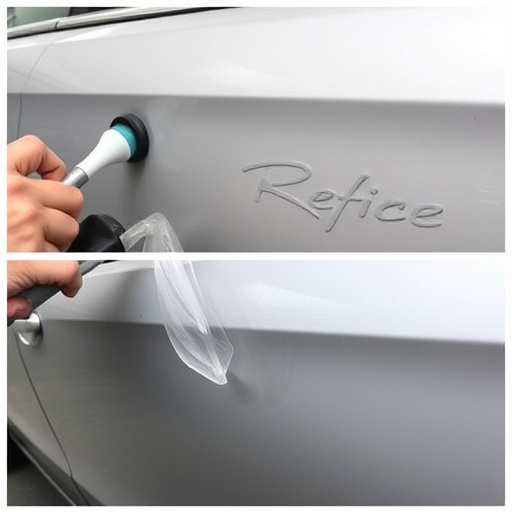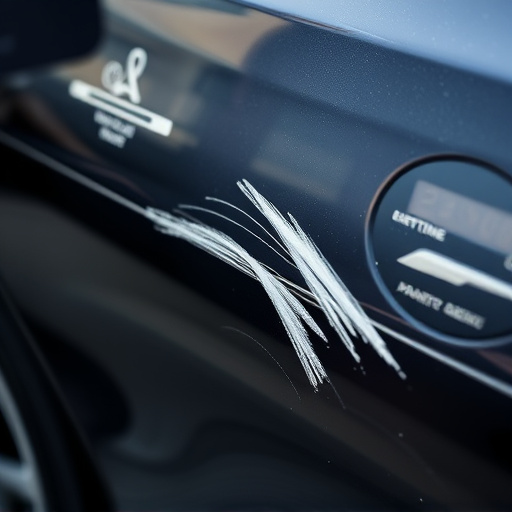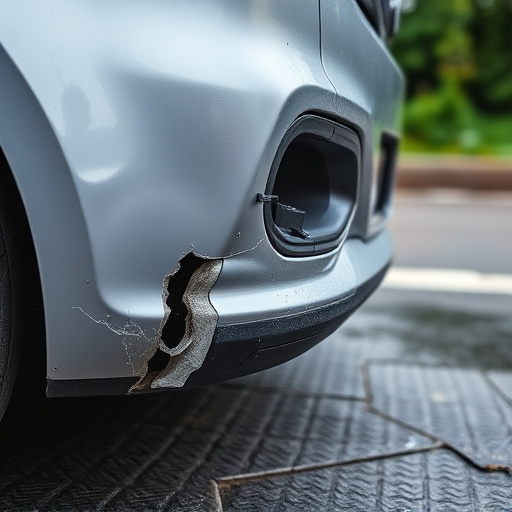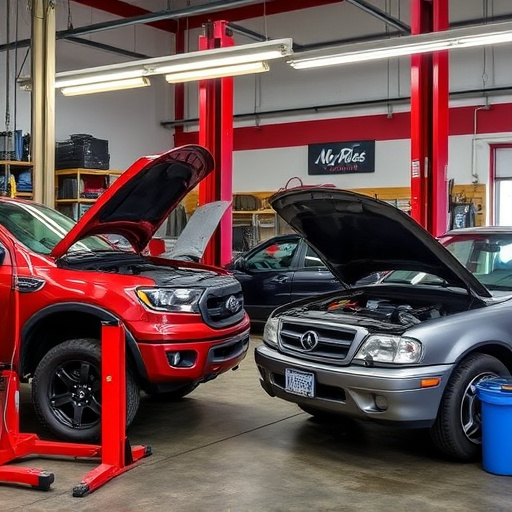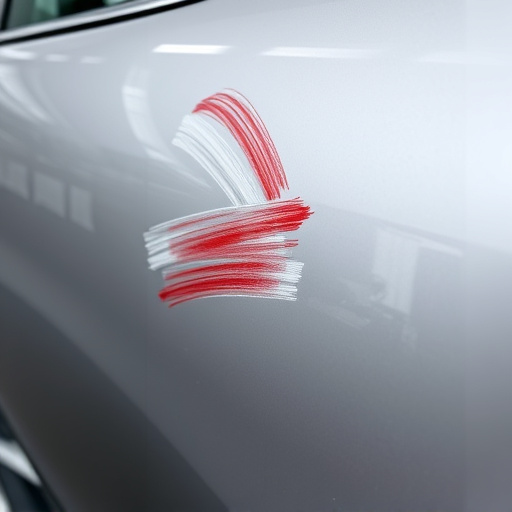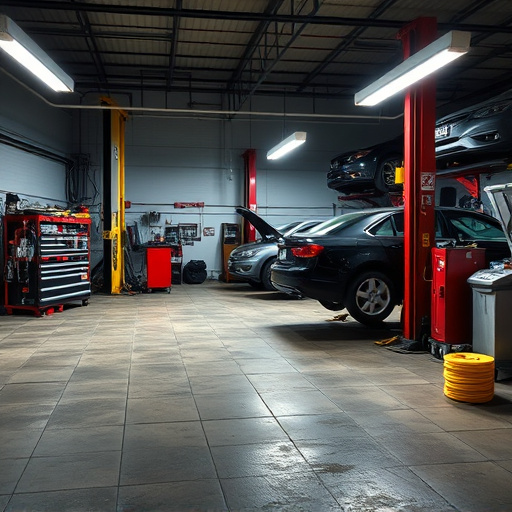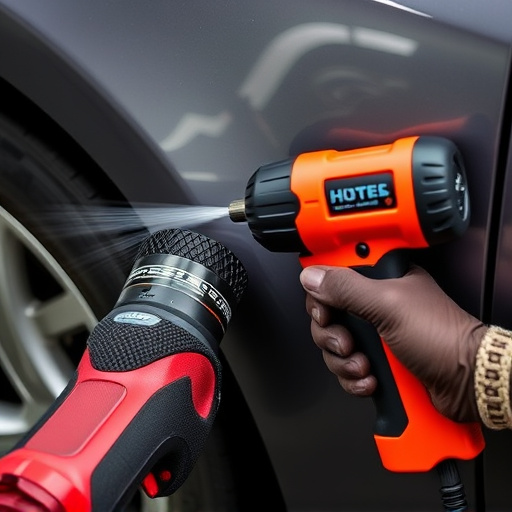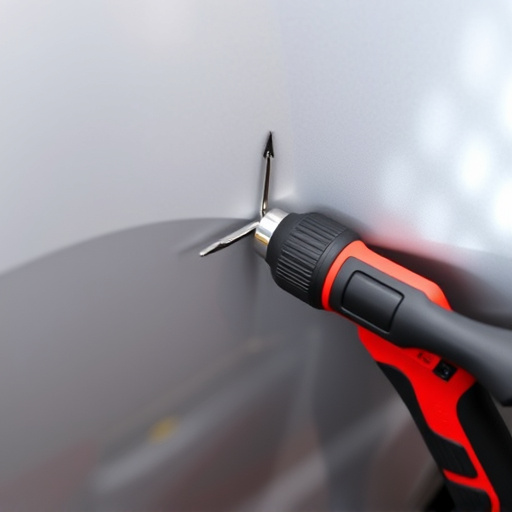Mercedes Lane Assist, an advanced safety feature using cameras, radar, and lidar, keeps vehicles centered in lanes. Regular recalibration is crucial for optimal performance, preventing issues like steering drift or delay caused by sensor malfunction, software glitches, or improper calibration. Efficient Mercedes lane assist recalibration enhances driver safety, control, and peace of mind on the road.
Mercedes’ Lane Assist system is a driver support feature designed to keep your vehicle centered in its lane. However, over time, it can experience issues like steering drift or delay, leading to unsafe driving conditions. This article delves into understanding the core function of Mercedes Lane Assist, explores common causes behind steering problems, and highlights the recalibration process as a solution. By calibrating your car’s system, you ensure enhanced stability and safety on the road, preventing potential accidents caused by off-center drifting.
- Understanding Mercedes Lane Assist Function
- Causes of Steering Drift or Delay
- Recalibration Process and Benefits
Understanding Mercedes Lane Assist Function
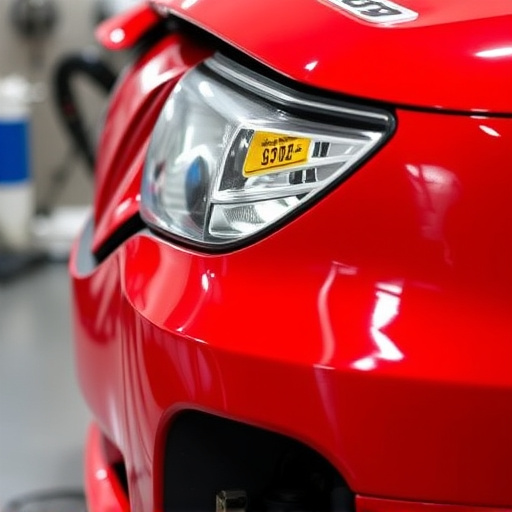
Mercedes Lane Assist is an advanced driver-assistance system (ADAS) designed to keep your vehicle centered in its lane and prevent unintentional drifting. It uses a combination of cameras, radar, and lidar sensors to monitor road markings and detect any deviations from the lane. When the system detects that your car is straying from its path, it gently steers the wheel to bring you back on course, ensuring a safe and controlled driving experience.
This innovative feature is particularly useful when fatigue or distraction sets in during long drives. The Mercedes Lane Assist recalibration process involves adjusting the system’s sensitivity and response to ensure optimal performance. Regular recalibration helps maintain the integrity of the car’s steering system and can prevent issues like a delay in response or even steering drift, which are common problems with poorly maintained or calibrated ADAS systems, including those comparable to Mercedes Lane Assist found in other makes, such as car dent removal, car body repair, and bodywork services.
Causes of Steering Drift or Delay
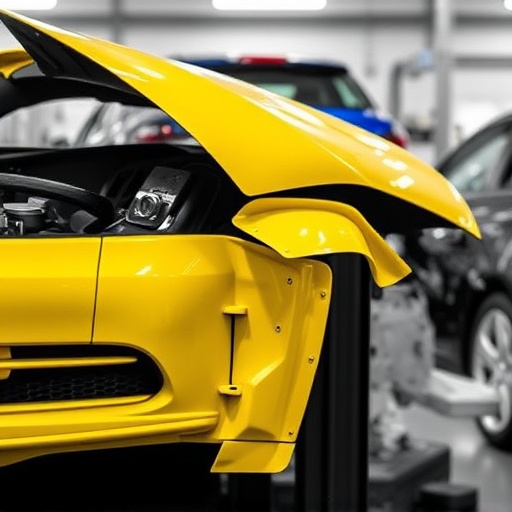
Steering drift or delay in Mercedes vehicles can be caused by various factors. One of the primary reasons is sensor malfunction within the lane-keeping system, often due to dirt, debris, or corrosion on the sensors or cameras responsible for monitoring road markings. This impairs the ability of the Mercedes lane assist system to accurately gauge the vehicle’s position and correct any drift, leading to a potential safety hazard. Another common issue is software glitches or outdated mapping data, which can cause latency in the system’s response time, resulting in a delay when correcting steering. These issues are particularly relevant for mercedes benz collision repair and vehicle restoration processes, as they may require advanced diagnostic tools and expertise from a reputable car repair shop to resolve effectively.
Moreover, improper calibration or physical damage to the steering components can also contribute to these problems. Over time, the alignment of the wheels and suspension may change, leading to uneven wear on tires and potential drift. Accidental damage during an accident or routine wear and tear can disrupt the delicate balance of the vehicle’s steering system, necessitating a Mercedes lane assist recalibration as part of comprehensive car repair services to ensure optimal performance and safety.
Recalibration Process and Benefits
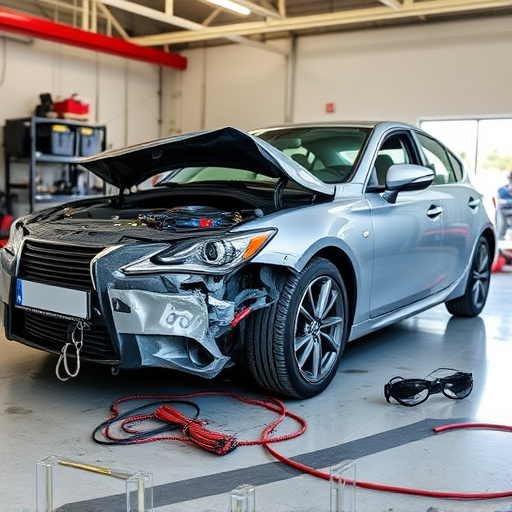
The Mercedes lane assist recalibration process involves a series of precise adjustments to the vehicle’s steering system, ensuring optimal performance of the lane-keeping assist feature. It is a meticulous procedure where specialized technicians access and tweak the car’s computer systems, calibrating sensors and algorithms responsible for maintaining proper steering alignment. This process is crucial in addressing any drift or delay issues that may have arisen due to normal wear and tear, an accident (requiring collision repair center services), or other factors affecting the vehicle’s condition.
Benefits of this recalibration extend beyond simply preventing steering drift or delays. It enhances overall driver safety by ensuring the car remains steady and responsive while navigating curves and highways. A well-calibrated lane assist system improves control, reduces the risk of accidents caused by unintentional drifts, and provides drivers with peace of mind while on the road. Efficient vehicle repair services for Mercedes models are designed to keep these advanced safety features functioning at their peak, contributing to a more secure driving experience.
Mercedes Lane Assist recalibration is a game-changer when it comes to maintaining precise steering control. By addressing issues like drift or delays, this process ensures your vehicle stays on course during drives. Understanding the causes of these problems and implementing timely recalibration can significantly enhance safety and driving experience, making it an essential step for Mercedes owners.
